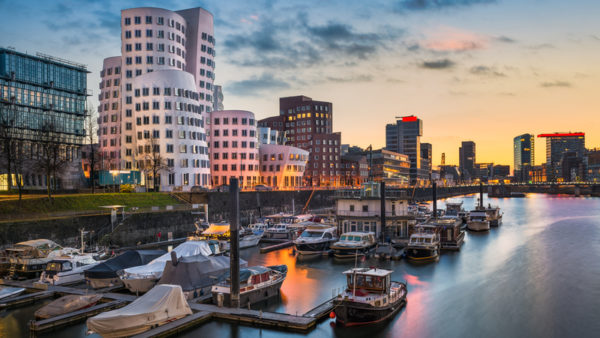A number of major infrastructure projects funded by China in Southeast Asia have been brought to a halt by coronavirus restrictions.
Among the projects affected are a 140km high-speed rail link between Jakarta and Bandung in Java. Work here came to a halt after Indonesia decided in March to restrict foreigners from entering the country, preventing Chinese labourers reaching the line’s construction sites.
Thailand has rescheduled its deadlines for a high-speed railway planned to connect with the line presently being built in Laos.
A package of 14 contracts for the 250km section between Hua Lamphong station in Bangkok (pictured) and the northeastern town of Nakhon Ratchasima was to have been agreed in May, but this has now been put back to October.
Meanwhile, Laos has also been affected, despite the fact that it had only 19 confirmed cases as of 2 May.
The developer of the Boten Special Economic Zone in Luang Namtha Province has suspended all construction work and closed stores and restaurants, "largely because few Chinese managers, technicians or tourists are showing up", the Business and Human Rights Resource Centre reports.
In Myanmar, a massive programme of infrastructure work for the China-Myanmar Economic Corridor (CMEC) has been hit by the coronavirus. This work includes a $9bn Muse-to-Mandalay railway link, and plans valued at around $10bn to build a deep sea port, power stations and industrial parks at Kyaukpyu.
These schemes had already faced delays, prompting Chinese president Xi Jinping to write an article stressing the need "to deepen results-oriented Belt and Road cooperation and move from a conceptual stage to concrete planning and implementation in building the CMEC".
This slowdown is serious for China because Southeast Asia, with its proximity to Chinese factories, strong growth and predictable returns on investment, is an ideal market for China’s surplus capital. Â
The Nikkei Asian Review reports that the Chinese Communist Party’s Politburo affirmed its commitment to the Belt and Road Initiative at an April meeting, but that China is focusing its resources on bolstering demand in its own economy.
Koji Sako, an academic at the Mizuho Research Institute, told the paper: "For now, China will have no choice but to reduce investments into infrastructure and other hardware overseas. Given the lack of growth in China’s current account surplus, limiting investments keeps cash from leaving the country."
However, China remains optimistic about its Belt and Road Initiative (BRI). Ma Zhaoxu, China’s permanent representative to the UN, told a meeting to commemorate the 100th anniversary of the establishment of the International Labour Organization that China had helped to build 82 "overseas cooperative parks", creating nearly 300,000 jobs.
And speaking at the second BRI Forum on International Cooperation, held in Beijing in late April, Ma said: "We’re confident that this forum will further energise BRI cooperation and make a greater contribution to the promotion of decent work for all."
In the first quarter of the year, Chinese companies signed $26bn worth of new construction contracts in the 57 countries participating in the Belt and Road project, according to China’s Commerce Ministry. This is 14% lower than a year earlier.
Image: Hua Lamphong, Bangkok’s main railway station (GCR)
Further reading:
Comments
Comments are closed.











Grateful for small mercies